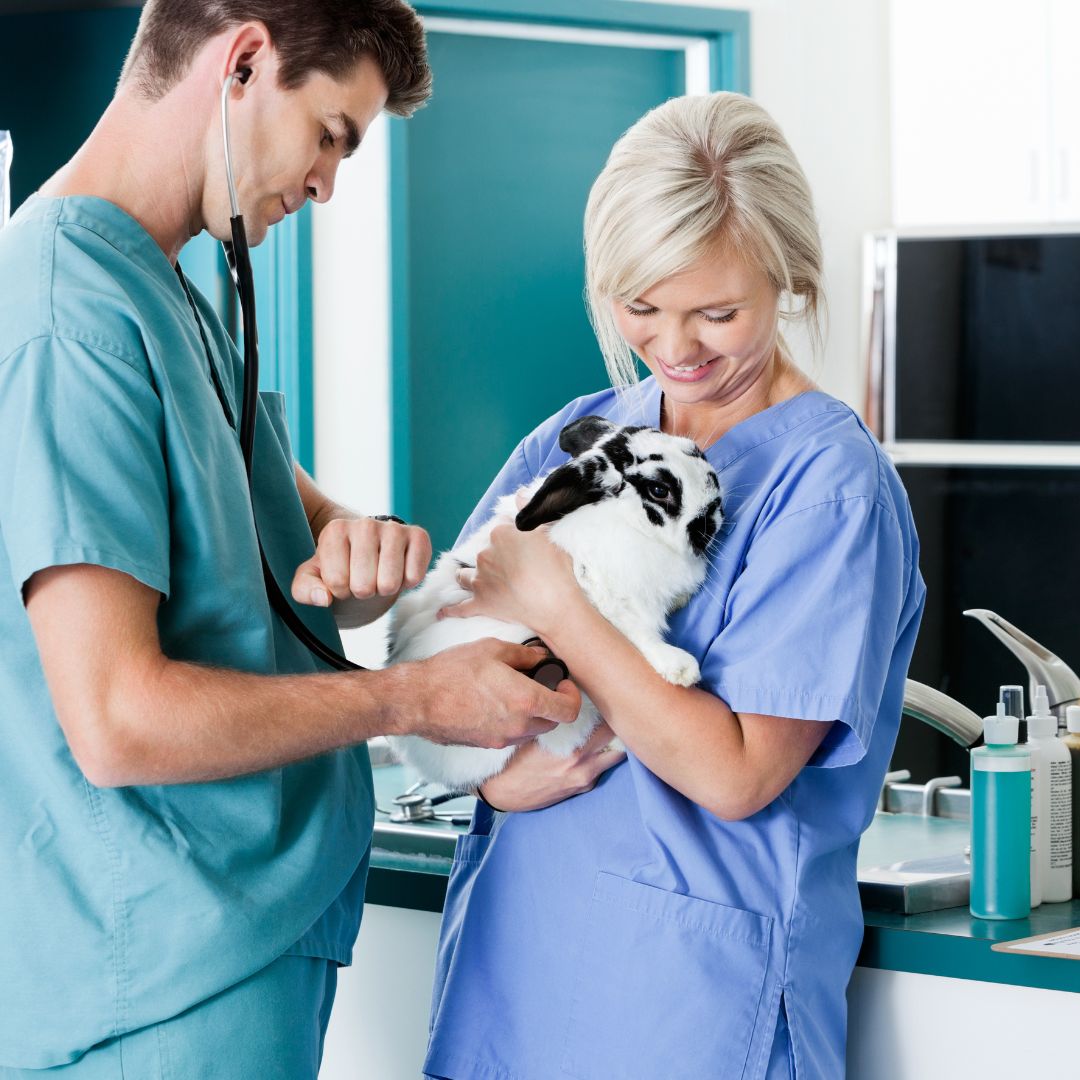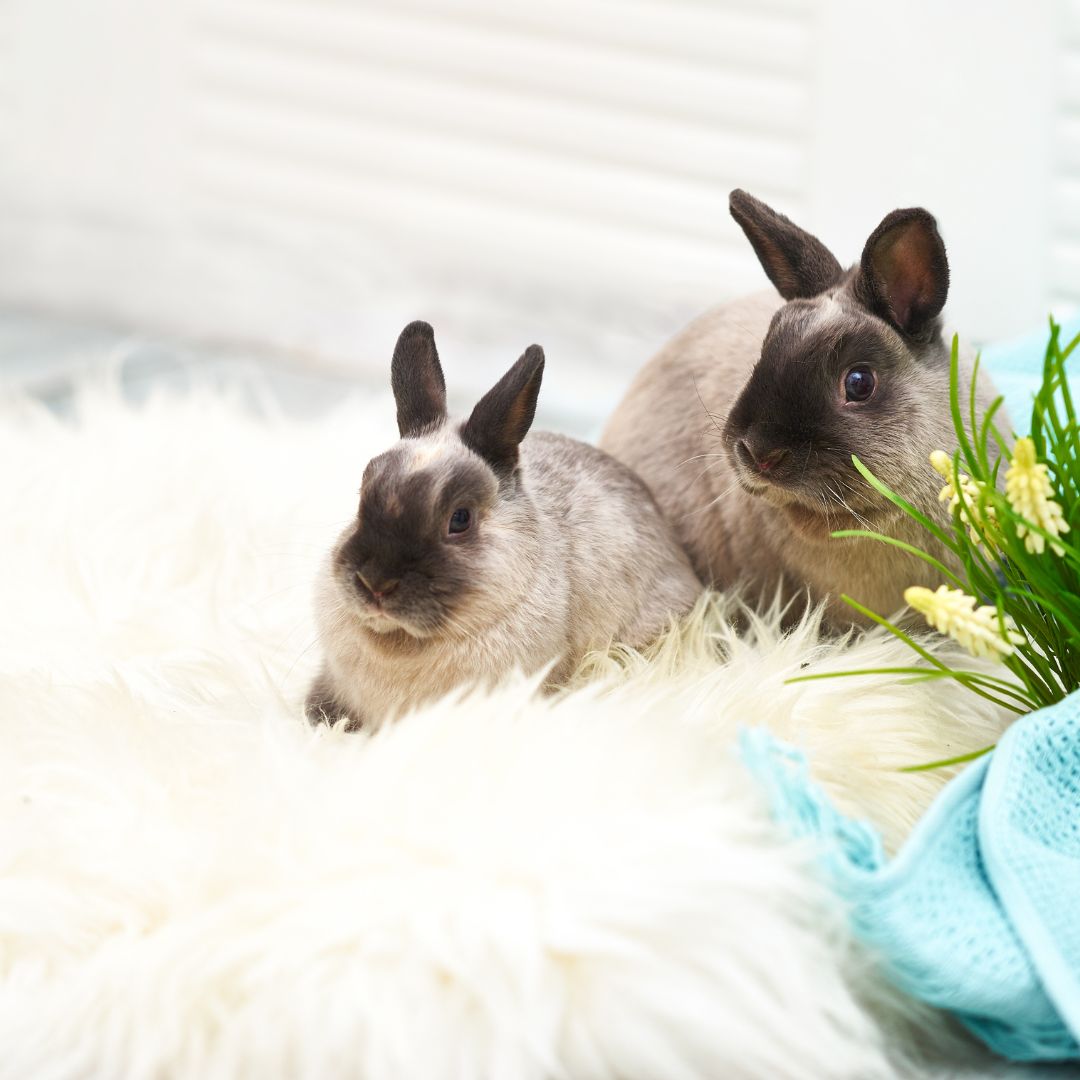Vaccinations
In Australia we highly recommend protecting your pet rabbit by vaccinating them against the highly pathogenic Rabbit Viral Haemorrhagic Disease. There are currently 2 main strains of the virus present in Australia (RHDV-1, and RHDV-2), both of which have a very high morbidity and mortality rate for unvaccinated rabbits who contract the virus. Thankfully in Australia we now have vaccines available that covers both strains.
The current recommended vaccination protocol is for all kits to have their first vaccine at 10-12 weeks of age, after which, they will require an annual booster. All rabbits over 10 weeks of age should be vaccinated as soon as possible, and also receive a yearly booster.
The vaccines are readily available in Australia, however we recommend calling your local vet or exotic vet clinic to ensure they have them in stock, and to book your vaccine appointment. Your vet will also perform a thorough health exam of your rabbit prior to their vaccination, which is a great yearly check up to ensure they are in optimal health.
Find more information on Rabbit Viral Haemorrhagic Disease in the COMMON ILLNESSES part of the care guide.

Desexing
Both male and female rabbits are able to be neutered by veterinarians experienced in small mammal and exotic animal surgery. In males, this procedure is called ‘castration’ and in females, a ‘spey’, both of which involve surgically removing the reproductive organs of the rabbit. Apart from preventing unwanted pregnancies and prolific reproduction, there are many health benefits to neutering your pet rabbit, and this is why it is generally recommended by most veterinarians.
One of the main health benefits of neutering your rabbit, is the reduced risk of reproductive cancers, involving the uterus, ovaries, testicles and mammary tissue. It may also help reduce several unwanted behavioural characteristics, such as aggression, humping, biting, and urine spraying.
We recommend finding a veterinarian experienced in rabbit and small mammal surgery, who is familiar with the specific considerations of rabbit anaesthesia, surgery and pre/post operative care.
Generally, you can expect your rabbit to be admitted to the veterinary surgery in the morning, and return home later that afternoon after the procedure. You will need to keep your rabbit quiet and rested following the procedure, and reduce excessive movement and activity, including jumping. You will need to keep your rabbit nice and warm after they return home from hospital, and your vet will likely provide you with some pain relief to give over the following days.
We recommend contacting your veterinary clinic for more information on their pre and post op desexing care.

Pregnancy and Gestation
Rabbits reach sexual maturity around 4-8 months of age, and by this time should be kept in same sex groups, or with neutered companions to prevent unwanted pregnancy. Female rabbits are induced ovulators, which means they do not have a ‘heat’ or set oestrus cycle like many other mammals, and the act of mating will bring on ovulation in a doe. This is one of the key reasons rabbits are such prolific breeders as they can ovulate and become pregnant at any time she comes into contact with an entire buck.
The gestation period for rabbits is approximately 30-33 days, with an average litter size of 4-12 kits. Each kit will normally weigh between 30-80g, with smaller litters often resulting in larger young.
Weaning and Infant Care
Baby rabbits, otherwise known as kits, are born hairless, with their eyes closed. They generally live in a nest with mum for the first 3 weeks of life, before adventuring out into the world. Kits should be offered a similar diet to your adult rabbits, including unlimited hay and fibre, pellets, and fresh leafy greens and vegetables, in addition to suckling from mum.
Kits and lactating doe’s generally require a diet higher in calcium than that of adult rabbits, due to the high calcium requirements for bone growth and development, and milk production during lactation. You can purchase pelleted diets specifically formulated for young rabbits, as well as alfalfa hay (which is reserved only for young, pregnant or lactating rabbits).
Kits are self sufficient and old enough to be weaned at 6 weeks old.
Do You Have Any Question?
If you do not find the answer to your question in our FAQ, you can send us a message by filling out the form below.


